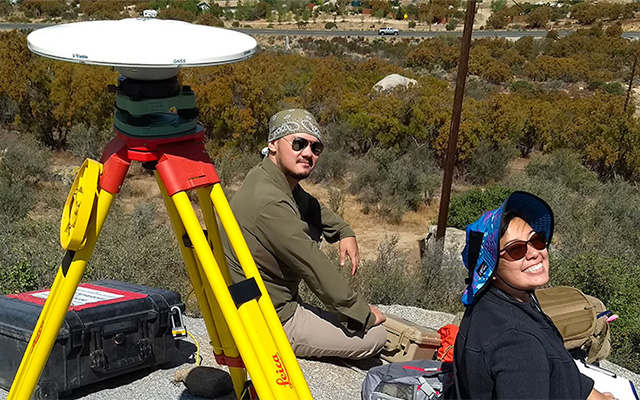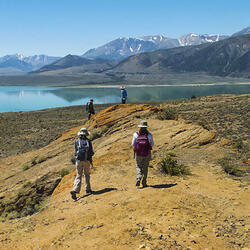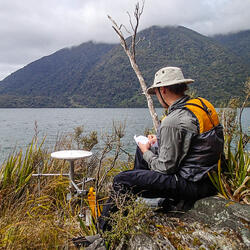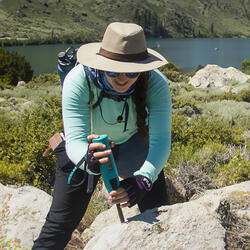Geophysics is the study of the Earth’s physics and structure. Geophysicists help us anticipate and understand natural hazards like earthquakes or volcanoes. They find and image features hidden deep inside of the Earth, or just under the ground. As the name implies math, physics, and specialized instruments are often heavily involved in the Geophysics major.
What makes Geophysics unique at UCR?
UCR is a land-grant institution with a strong applied focus in Entomology and Botany (especially as pertains to citrus). Many of the Entomology and Botany faculty teach classes within the Biology major.
In general, what are Geophysics professors investigating?
- How does the Earth deform? Why do some earthquakes become large, while others remain small?
- Why do some faults creep, some slip slowly, some have small earthquakes, and some generate supershear earthquakes?
- How much did anthropogenic seismic noise change in major cities during the COVID pandemic?
Why Geophysics at UCR?
A key strength of the Geophysics major is that it is designed to prepare students with the fundamentals of Geophysics – foundational classes in Math and Physics, along with core classes spanning key concepts in Geology and Geophysics.
Geophysics research at UCR
- UCR geophysics professors have strong expertise in the study of earthquakes and tsunamis from active monitoring through GPS, satellite radar, and seismometers all the way through to supercomputer simulations
- UCR geophysicists also investigate the structure and composition of Earth hidden beneath our feet. Their study areas span the globe
What industries can I get into with a Geophysics degree?
- The Geophysics major is designed to prepare students for careers in geophysics, whether these be careers in industry, for state or federal agencies, or academic careers.
- Graduates will also be prepared for jobs that require numeracy or computer skills.
What can I do with a Geophysics degree?
Recent Geophysics graduates have been hired as Field Geophysicists, Land Surveyors, Equipment Technicians, for local and national geophysical companies, companies producing geothermal power, or as scientists working in the military. Around a third of graduates have gone on to graduate school to study topics like Seismology, Geodesy and Applied Geophysics.
What you should know
One thing every student who may be interested in majoring in Geophysics should know is that the requirements for Geophysics are very similar to those for Physics, but there is more of a mix of fieldwork and labwork in Geophysics. Fortunately, for students who are wavering between the two majors, the introductory class requirements are very similar for both, and it is straightforward to switch between them!
Advice for success
Start tackling your core requirements like math, and physics early, but also get into your first GEO course as soon as possible to meet your peers. Take the initiative and get involved! Consider joining the student-run Geology Student Organization (GSO) club and attending department events. Start exploring what interests you so you can potentially join a research lab or internship in your sophomore or junior year.
Consider this
The field of Applied Geophysics – using electricity, electromagnetism, gravity, seismology and/or surface change to detect what is present underground – has many, many applications. While it can be used to detect oil, gas and ore for mining, it is also essential for archaeology, civil engineering, for managing groundwater resources and detecting pollutants. It is a viable and lucrative career path! And probably the first 'proper' Geophysics class you will take!
Available Minor in Geophysics
Geophysics Minor




